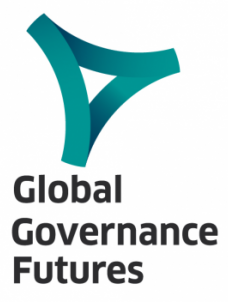Cities Are the Last Line of Defense of Globalization – a Conversation with Ana Ramic

This interview was conducted by the Global Governance Futures – Robert Bosch Foundation Multilateral Dialogues, which brings together young professionals to look ahead 10 years and recommend ways to address global challenges.
1. City governments and local decision-makers still do not participate in shaping the global agenda like national governments do. What is the potential of city networks such as C40 and the Global Covenant of Mayors to address global issues?
Today, even though cities – and especially the large global cities – hold a disproportionate amount of the world’s economic power, they still lack the autonomy to act on issues independently. That is why city networks exist and why they are proliferating. So the potential of these networks is great, but the question is: how will they actually gain the necessary autonomy – and when?
The answer may lie in “franchised cities.” This is a term we came up with in our GGF forecasting scenario to describe the proliferation private cities around the globe and the networks they are part of. It is entirely possible that in the next 10 years we will see the rise of Facebook or Google city, for example – indeed, this is already in progress in California. And then imagine Google “opens” another city outside of Johannesburg, and a third outside of Perth. And imagine Amazon functionally taking over one half of all services in Seattle and several other cities around the globe, offering its city-citizens all mobility and health-related services, etc.
Those cities would have connections around the globe and an inherent interest in lobbying on the world stage, combined with huge economic power. That is the potential – the combination and intensified partnerships between private enterprise and city government, and in some instances the two could be one and the same.
For now, city networks like C40 are led by Mayors and other city government officials, but it is also possible to imagine Jeff Bezos leading the charge for a new City Union along with big city mayors and others, forming a supra-city structure that shares technology infrastructure, data, service provisions, and new sets of legislation facilitating the cooperation of cities.
 2. There are parallels between rising nationalism and the widening urban-rural divide. Will this divide widen when cities become more prominent actors in global governance and how can we make sure that this does not happen?
2. There are parallels between rising nationalism and the widening urban-rural divide. Will this divide widen when cities become more prominent actors in global governance and how can we make sure that this does not happen?
With the backlash against globalization that we are seeing, cities could end up being the last defenders of the merits of globalization. What I mean by that is that cities, and especially large global cities, by their very nature exude merits such as diversity, liberalism, tolerance, and economic power.
This could lead to a widening of the rural-urban divide and growing economic and cultural divergence and disparity between urban and non-urban areas. It could also lead to some of the world’s most powerful cities pulling ahead of other existing urban areas into the “1%” elite category of society’s most wealthy. These cities may then form a coalition with the richest, most connected cities, forming in turn a “1%” category of cities. They could then band together against the anti-globalization - or anti-city - forces. And maybe there is nothing we can do about it other than self-select and move into those cities, if that’s our inclination. But there is also the possibility that our virtual existence - especially with the rise of e-citizenships and other e-services - ensures that physical location, in fact doesn’t matter.
3. Do you see cities taking a more prominent role in shaping political agendas?
This is already happening now - take for example sanctuary cities in the US. These local jurisdictions enact policies that are designed to limit cooperation with federal immigration enforcement actions: they choose to not fully cooperate with federal efforts to find and deport unauthorized immigrants. The list includes many of the country’s largest cities such as Los Angeles, Chicago, New York City, and others.
Such developments are sure to cause a period of friction between cities and national governments – and have indeed already done so – but cities are where solutions are implemented, where things actually get done. However, cities have the weaker hand for now: power still devolves to nation-states, or to states or regions.
But, cities were humanity’s first fixed settlements and for a long time now they have been where economic power is concentrated. And if the backlash against globalization continues, the power of nation states could decline. Like it or not, because of technology, we live in a globalized world and if nation states do away with free trade, knowledge and cultural exchange, their power will wilt. After the fall of empires following World War I, and since the period following the Cold War – with the dissolution of the USSR and Yugoslavia – we have seen a wave of new states being born. We have gone from centuries of large empires where national borders are vast, to ever smaller states. Borders change all the time, and they keep changing (see, for example, the current Serbia-Kosovo border dispute). The broad trend is that countries are getting smaller. Why shouldn’t that continue right down to the city-level, creating city-states that are functionally independent from the nation states of which they are part? As we see debates over self-determination in regions like Catalonia and Quebec, it is possible to think that people will move to “self-determine” into an even more local area such as a city.
Cities will remain the last frontier, the defenders of values like democracy, tolerance, diversity, connectedness, and enabled by technological capabilities and private enterprise, they will thrive. A new landscape of urbanization will be created which will change the definition of governance, citizenship, and territory.
A new set of powerful, sovereign cities could band together to take on rising global challenges in an increasingly polarized world.
Ana Ramic is head of communications at the European Council on Foreign Relations and a Global Governance Futures 2030 fellow. The views expressed here are her own.
Image credit: brillianthues via Flickr (CC BY 2.0)


